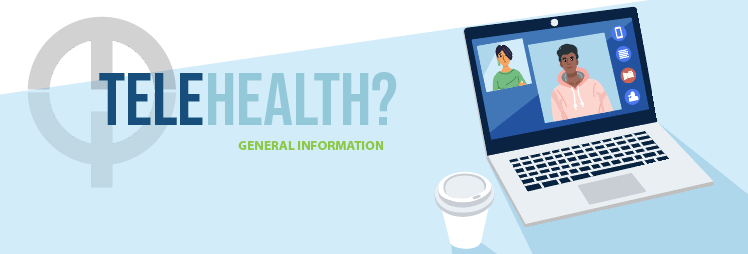Telehealth - Give it a try
The world is a weird place right now! While those of us in Perth and the rest of Western Australia have been lucky to live mostly as “normal” for the past couple of years, things are changing quickly and you’ve probably noticed lots more talk about Covid-19.
One of the things Covid-19 has changed over the past two years has been the way we support people’s mental health. Due to things like lockdowns, isolation, and quarantine, something we need to prepare for is telehealth therapy - therapy via video or telephone calls. Some of you may have experienced this in the past or with other health professionals like doctors, while for others this might be an entirely new idea. To make the process easier for you, we’ve put some tips and thoughts for you below. If we’ve missed anything, feel free to chat about it with your therapist who will be happy to explore with you.
- Telehealth therapy is similar to face-to-face therapy, so you and your clinician will still be exploring and talking about your life, friends, family, feelings, recent events, mental health, and current challenges and successes. Except it’s all done via a video call, like a face time chat (we usually use Zoom at Masters Psychology), or sometimes via the phone. You’ll be at your home or somewhere similar, and your therapist will either be in their office at the clinic, or in their home office.
- Because young people are familiar with so much technology these days, it might feel really normal and comfortable for you to connect like this, or to begin with it might feel weird and awkward. There is no right or wrong way to feel about telehealth therapy but we find that usually after a couple of sessions, it feels a lot less strange. Keep going!
- You don’t have to travel to and from appointments. This may make it easier to attend appointments at times that may suit you and your family better.
- Your sessions won’t be recorded, are kept confidential, and no one else on the internet can log in and see them. Your clinician will be in a private space and will ensure no one can hear the session from their end. Using headphones is one way to make sessions a little more private.
- Make sure your space is free of distractions like the TV, gaming devices, and your phone, just like it would be in face-to-face therapy. Turn your devices on silent, and mute notifications for the sessions so you’re not distracted with pop-ups and messages.
- You get the chance to show your clinician your world at home and explain and explore things at that are meaningful to you. You can walk around, show us your pets, take the tablet or laptop outside and sit in the sunshine, or cozy up on the couch.
- Bring pens, pencils and paper ready to participate in the session. We’ll let you know via email prior to the session if you need to organise anything specific for the session.
- We know from research that while telehealth therapy is different, it still works to support mental health concerns, helps improve stress, reduce anxiety, and help cope with ongoing challenges.
- If you feel like telehealth isn’t working for you, chat about it with your clinician and see if there are things that can be changed or improved. We can talk about the next steps or discuss other options to meet your needs.


